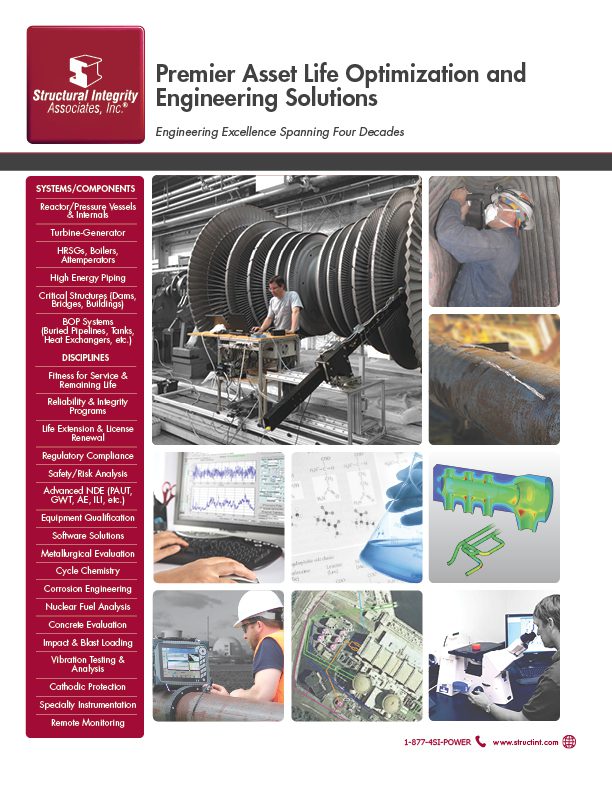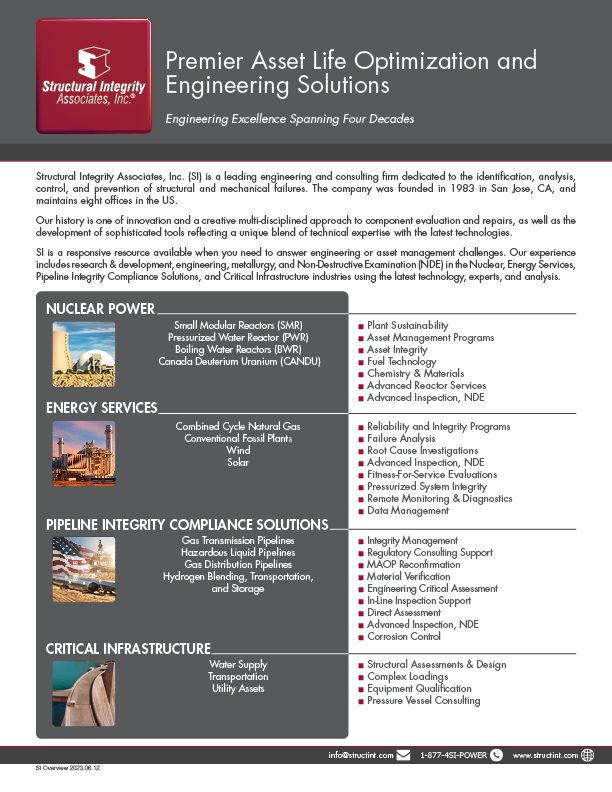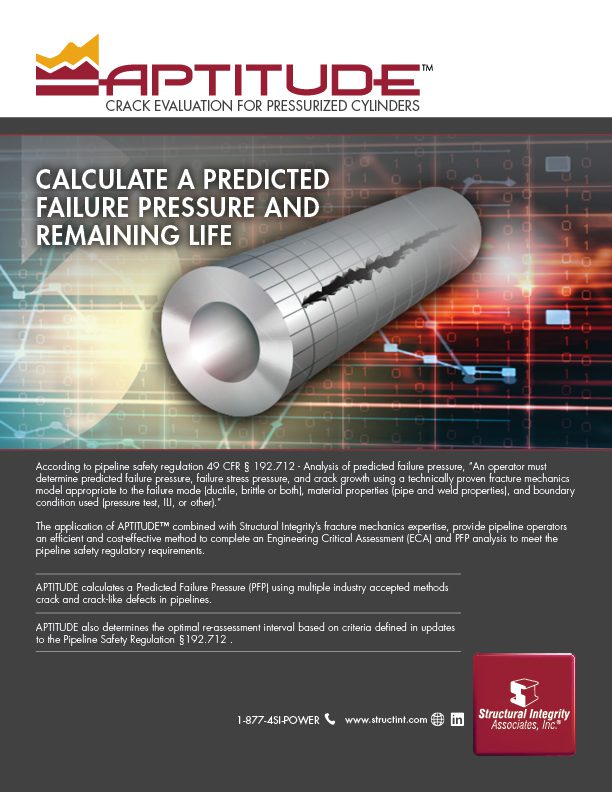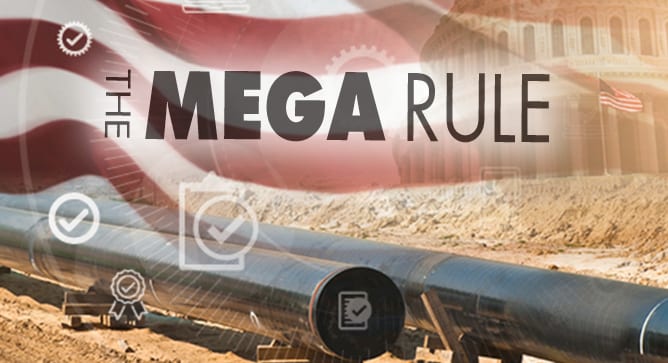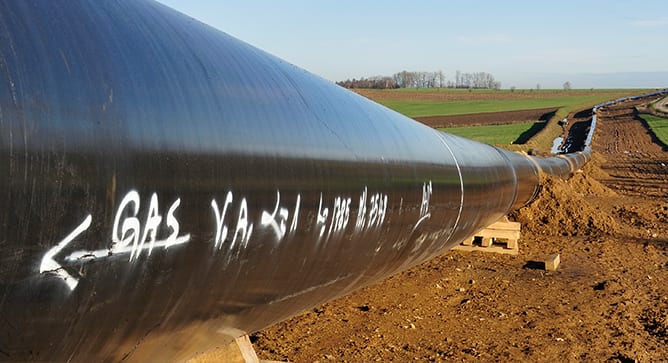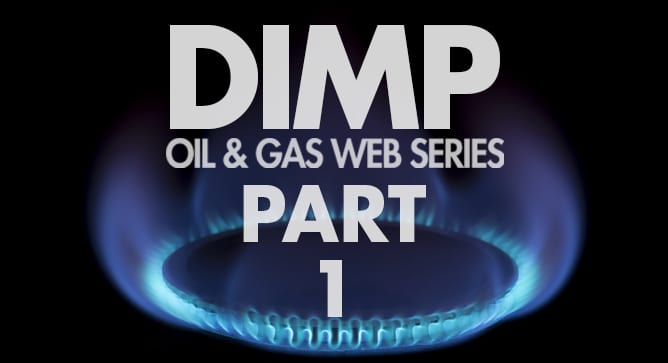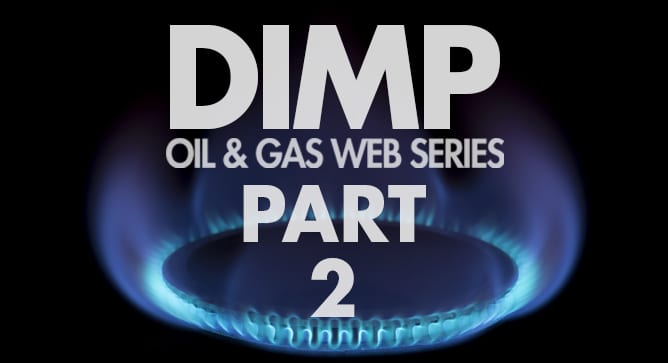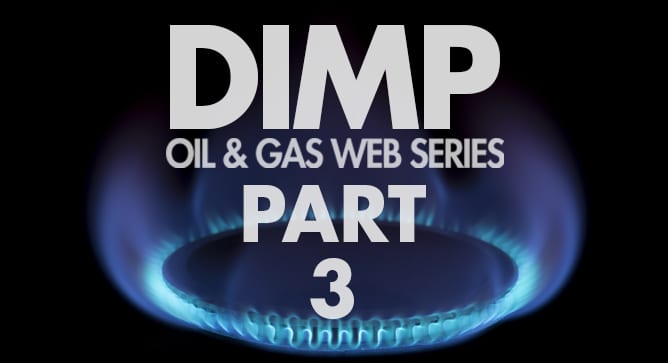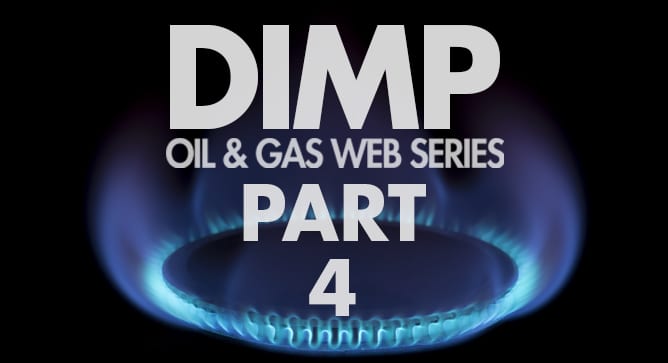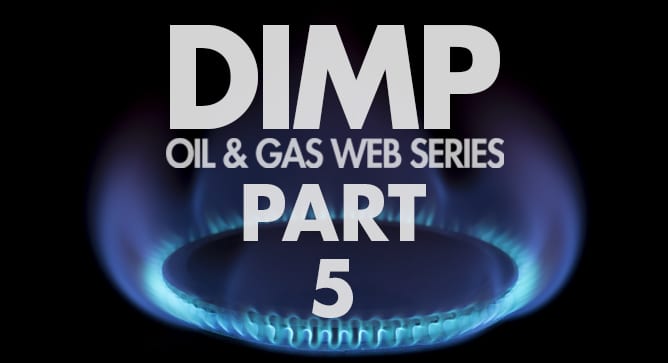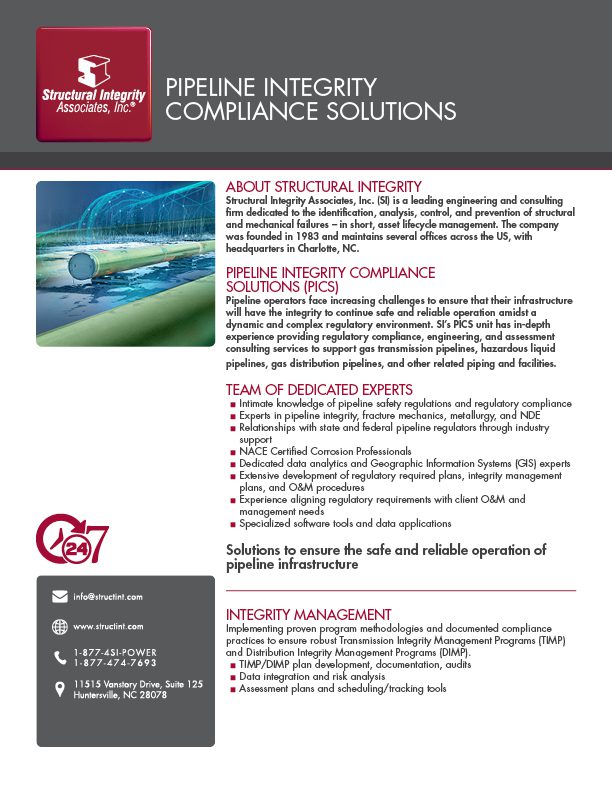
With 35 years of specialized oil and gas experience, we understand the pipeline industry and its complexity. Within the dynamic and complex regulatory environment, we support our clients’ management of their company’s integrity-related challenges.
PIPELINE SERVICES
Leaders in the Pipeline Safety Industry
INTEGRITY MANAGEMENT
Partner with our industry-leading experts, proven program methodologies, and documented compliance practices to ensure robust Transmission Integrity Management Programs (TIMP) and Distribution Integrity Management Programs (DIMP) including compliance with new regulatory requirements implemented for the Safety of Gas Transmission Pipelines: MAOP Reconfirmation, Expansion of Assessment Requirements, and Other Related Amendments (Mega-Rule).
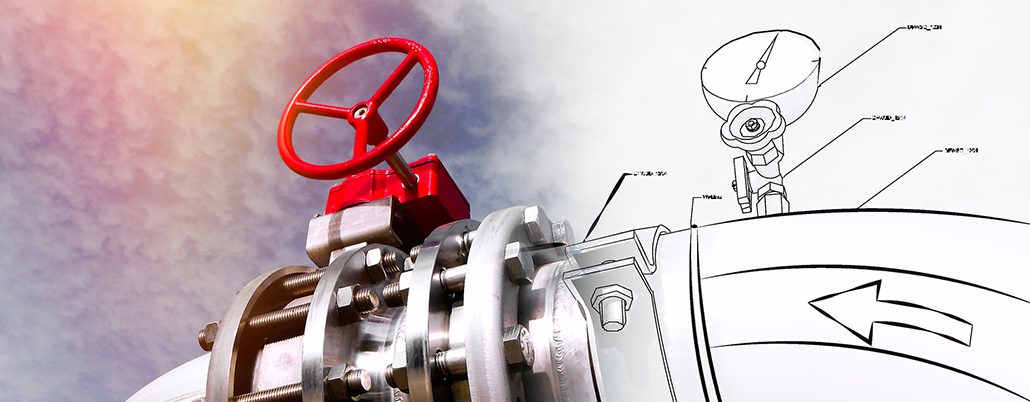
REGULATORY CONSULTING
Structural Integrity can help ensure compliance with current pipeline safety regulations, benchmark against industry best practices, and make recommendations for continuous improvement to your company’s related programs and procedures.

MAOP RECONFIRMATION
For designated in-scope gas transmission pipelines without Traceable, Verifiable and Complete records an operator will need to Reconfirm the Maximum Allowable Operating Pressure (MAOP). Operators must have developed and document procedures to reconfirm MAOP for subject pipelines within prescribed deadlines. We have extensive experience developing and implementing MAOP Reconfirmation Plans and supporting procedures for clients. As part of this Plan, a structured approach and methodology is developed to support the MAOP Reconfirmation process and supporting application tools are available to help ensure efficient and regulatory compliant implementation.
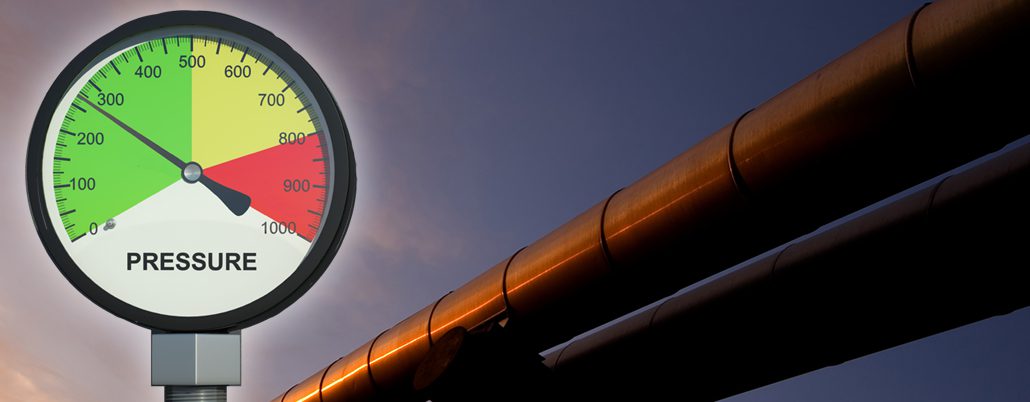
MATERIAL VERIFICATION
Pipeline regulation (§192.607) requires a Material Verification (MV) Program to verify material properties (diameter, wall thickness, grade, seam type) on pipe segments with inadequate records. Structural Integrity has created robust procedures and tools to help operators develop and apply their MV programs. We also maintain a team of expert field specialists and equipment to perform MV on in-service pipelines or can perform lab testing on pipe removed from service. We developed MVI, a web-based software application, offering Operators a cost-effective way to centralize data, track progress, and generate reports with their MV program to comply with PHMSA regulations.
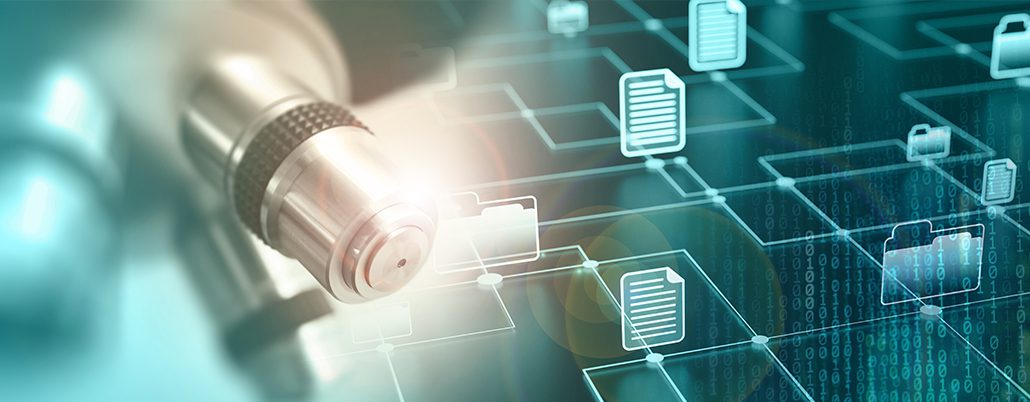
PREDICTED FAILURE PRESSURE & ENGINEERING CRITICAL ASSESSMENT (ECA)
New requirements have been added throughout pipeline regulation that require the analysis of the predicted failure pressure at the location of an anomaly or defect. Prescriptive methodologies for corrosion wall loss have been identified. For crack-like defects, a detailed fracture mechanics analysis must be applied that uses appropriate methodologies that consider the potential failure mode of the defect. Structural Integrity possesses detailed expertise to analyze various pipeline defects and anomalies and have developed specialized application tools (APTITUDE™) to support this analysis. We also have procedures and expertise to apply an ECA to support this methodology for MAOP Reconfirmation.

NON-DESTRUCTIVE EVALUATION (NDE)
The most highly skilled, certified, and diverse teams of NDE consultants in any industry, maintaining multiple full-time senior Level II and Level III team leads. Our experts have pioneered revolutionary new nondestructive examination technologies and are well versed in applying these technologies to assess the condition of pipelines and pipeline facilities.
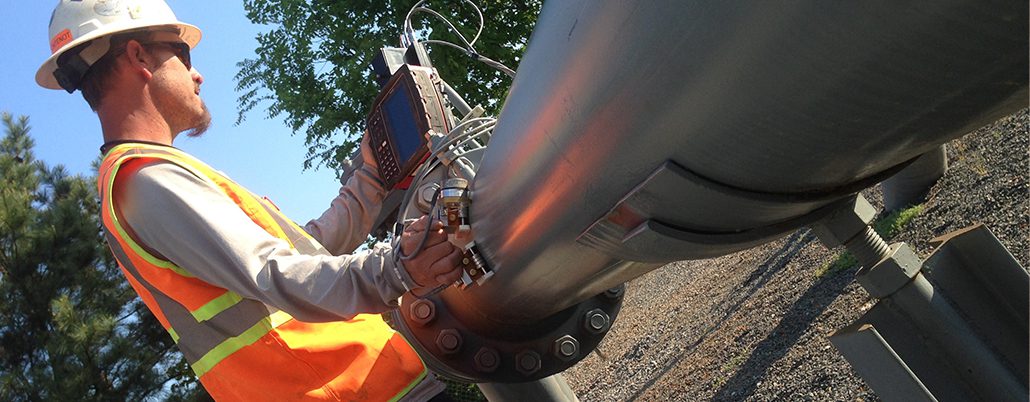
HYDROGEN BLENDING & INJECTION SUPPORT
Recent advances in technology, paired with governmental and organizational clean energy commitments, energy companies are evaluating the capacity of their natural gas transmission and distribution pipeline systems to safely transport blends of natural gas and hydrogen. Structural Integrity Associates, Inc. is well-equipped with the technical expertise to evaluate hydrogen’s impact on pipeline integrity issues and assist our clients in developing a roadmap to maintain the safety and integrity of their aging natural gas steel transmission pipelines.
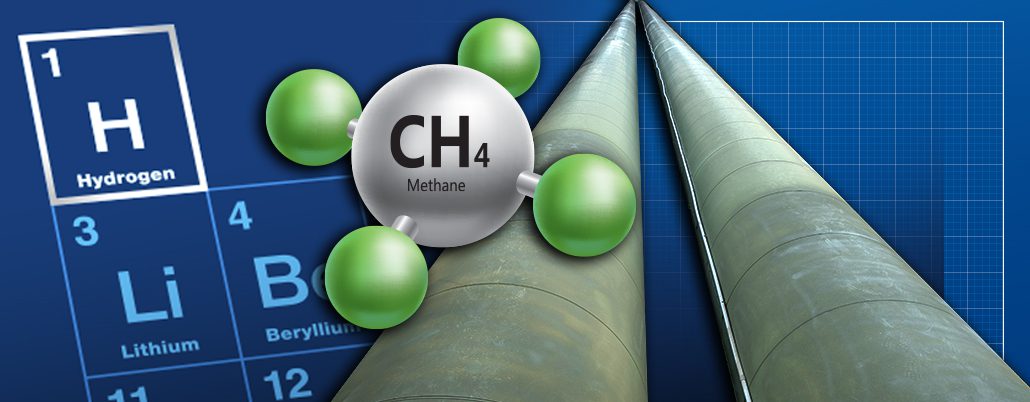
CORROSION & METALLURGICAL ENGINEERING
Structural Integrity has NACE certified Corrosion Control and Cathodic Protection experts who have developed processes and procedures that assist pipeline operators in solving existing corrosion problems, while ensuring robust corrosion control programs.
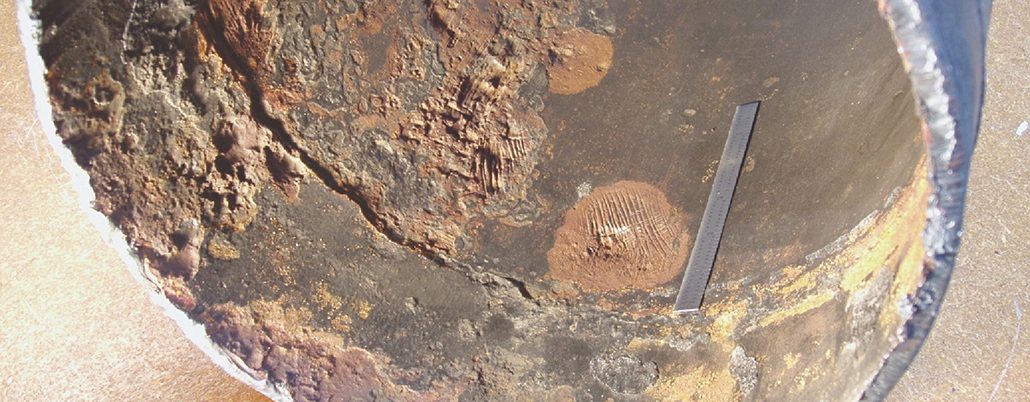
RELATED MATERIALS
Product & Services Information
Featured Articles
Webinars
SIGN UP FOR OUR NEWSLETTER
*Join the conversation. Sign up to receive emails, events, and latest information!
1-877-4SI-POWER
(1-877-474-7693)


